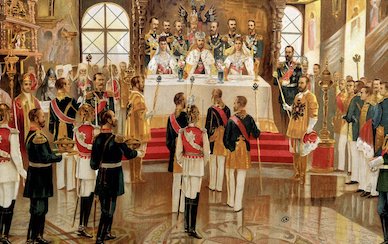
Emperor of Russia. The title used by the rulers of the Russian Empire from 1721 to 1917. The emperor, also commonly referred to as the Tsar, was the autocratic head of state and held absolute power over the vast Russian Empire. The position was abolished following the Russian Revolution of 1917 and the abdication of Nicholas II.
History and Establishment
The title of Emperor of Russia was formally adopted by Peter the Great in 1721 following Russia’s victory in the Great Northern War. Prior to this, Russian rulers were known as Tsars. Peter sought to modernize and westernize Russia, adopting the imperial title to align with European monarchies. The title was recognized by other European powers and marked Russia’s emergence as a major global force.
Powers and Responsibilities
The Emperor of Russia wielded absolute power, controlling the government, military, and the Russian Orthodox Church. The autocracy was supported by a vast bureaucracy, secret police, and a rigid class system dominated by the nobility (boyars). The emperor could issue decrees, declare war, and control foreign policy without parliamentary consent.
Key responsibilities included:
- Commanding the Imperial Russian Army and Navy.
- Enacting laws and reforms.
- Overseeing the Russian Orthodox Church as its supreme protector.
- Managing foreign relations and territorial expansion.
Notable Emperors
- Peter the Great (1682–1725) – Modernized Russia and expanded its influence.
- Catherine the Great (1762–1796) – Expanded Russian territory and promoted enlightenment ideas.
- Alexander I (1801–1825) – Defeated Napoleon during the Napoleonic Wars.
- Nicholas II (1894–1917) – The last Emperor of Russia; abdicated in 1917 during the Russian Revolution, leading to the fall of the monarchy.
Abolition and Legacy
The monarchy was abolished in 1917 during the February Revolution, and Nicholas II abdicated in favor of his brother, Grand Duke Michael, who declined the throne. The Bolshevik Revolution later led to the execution of Nicholas II and his family in 1918.
Despite its end, the Russian monarchy remains a significant part of Russian history. Today, the legacy of the emperors is preserved in historical sites, museums, and cultural discourse.